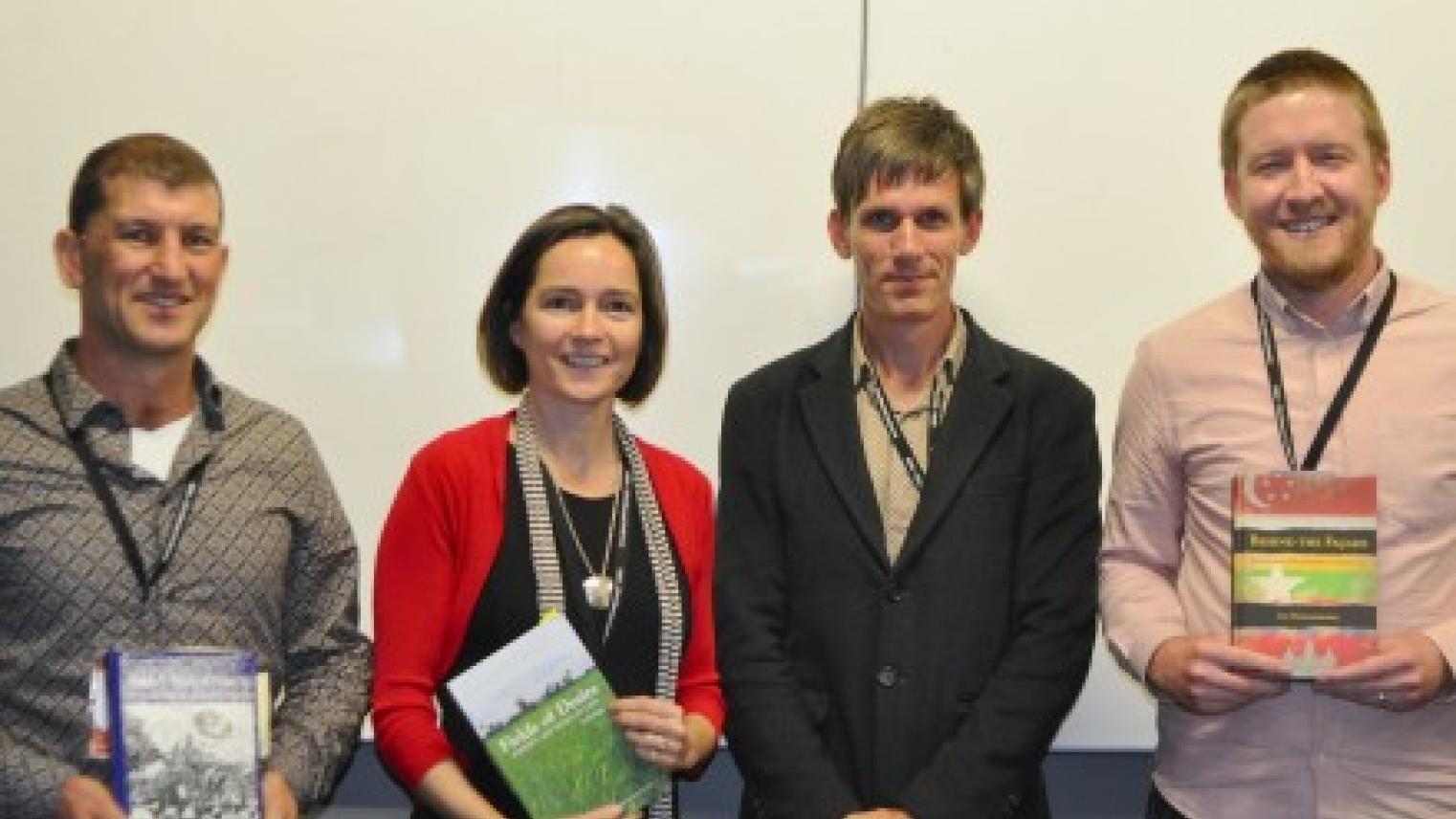Bringing serious authors and serious topics on Southeast Asia to the public

Taking research to the masses, Dr Nick Cheesman hosts a monthly podcast on Southeast Asian studies as part of the New Books Network.
Listen to the podcast: http://newbooksnetwork.com/category/southeast-asian-studies/
The podcast, New Books Southeast Asian Studies (NBSEAS), is just one of over 80 channels in the New Books Network (NBN). Since he began hosting the channel four years ago, Nick has quadrupled its audience size, now getting around 8,000 downloads a month. The entire network has around half a million monthly downloads worldwide.
It seems that books aren’t dead after all, and that there is still quite a healthy public appetite for in-depth discussions about important new research.
The stated aim of the New Books Network is to ‘help save humanity from death-by-ignorance’ by bringing serious conversations with authors of scholarly books to a general audience (in addition to academics and their students).
NBN is unique - there are no other dedicated online venues for authors of scholarly books to talk at length about their work, and raise the level of public discourse by introducing serious authors to a wide public via new media.
The New Book Network podcasts over 100 new interviews a month and has a network of 180 hosts who are topic experts, and who contribute interviews with book authors in that field. Nick is the topic expert on Southeast Asian studies, and has been listening to podcasts for years, so he was the right host for the NBSEAS channel.
“I think podcasting is the best online innovation ever. It’s both a democratic and substantive mode of communication”.
When he found NBn four years ago, he noticed that there was an inactive channel on Southeast Asian studies. He got in touch with the head of the network - an historian in Massacheusetts - one thing led to another, and he decided to host the channel, as a way of giving something back to the podcast world, from which he had gained so much.
The NBSEAS channel is today sponsored by the ANU Southeast Asia Institute (SEAI), Sydney Southeast Asia Centre (SSEAC) at The University of Sydney, and the Griffith Asia Institute (GAI) at Griffith University.
As for the topics covered in the NBSEAS channel - if it’s Southeast Asian studies, it goes. In almost 50 episodes to date, most of the featured books are related to social science and the humanities. They have ranged from ancient history to cartography, to political theory, to comparative religion, and ethnography.
“We’ve featured books on every Southeast Asian country except Timor Leste and Brunei - hopefully we’ll have featured books on them soon. The authors have come from institutions across Asia, Australasia, Europe and North America”, Nick says.
In each episode, he tries to cover the basic contents of the book in the first twenty minutes, so that an undergraduate or someone with a casual interest who is thinking of going out and getting a copy of the book will get a better idea of what is in it.
The content of the rest of the episode can vary widely. “We might talk more about how the author came upon an interesting research question, or about their methods, or source materials, or what kept them motivated, or what skills they needed to write it. Often the discussions give listeners more intimate, less guarded insights into the business of researching and writing the book than they might get from reading the book itself”. That said, he does hope that many people who listen to the interviews will also be keen to read the books featured, having heard the authors speak.
Finding authors to interview for the podcast was initially a case of asking friends or colleagues to do him a favour by coming to speak. “Luckily they were kind about it, and tolerant of my inexperience”.
From there, the reputation of the channel has grown, and he has been able to convince authors who he didn’t know personally to get involved. Now he is often approached by publishers, authors and readers to appear on the show, and has an international advisory board to provide recommendations. But he is quick to state “I’m open to suggestions from anyone”.
For Nick, hosting the channel is a great way to read books that he would not otherwise have read, and speak with colleagues at length about topics that they are deeply invested in.
“I become so engaged either because the book is so well researched and written, or because the author is so good at communicating about the book in an interview, or both”, Nick explains.
Hosting the channel has also led Nick to have some great encounters with listeners and fans keen to ‘put a face to the voice’. When he was on a fellowship at Princeton a listener came from another state just to talk over lunch about a couple of the episodes that he’d heard. Nick was also surprised to find that colleagues in Japan have been listening too. For Nick, it’s also these kinds of off-mic conversations that make hosting the channel deeply worthwhile.